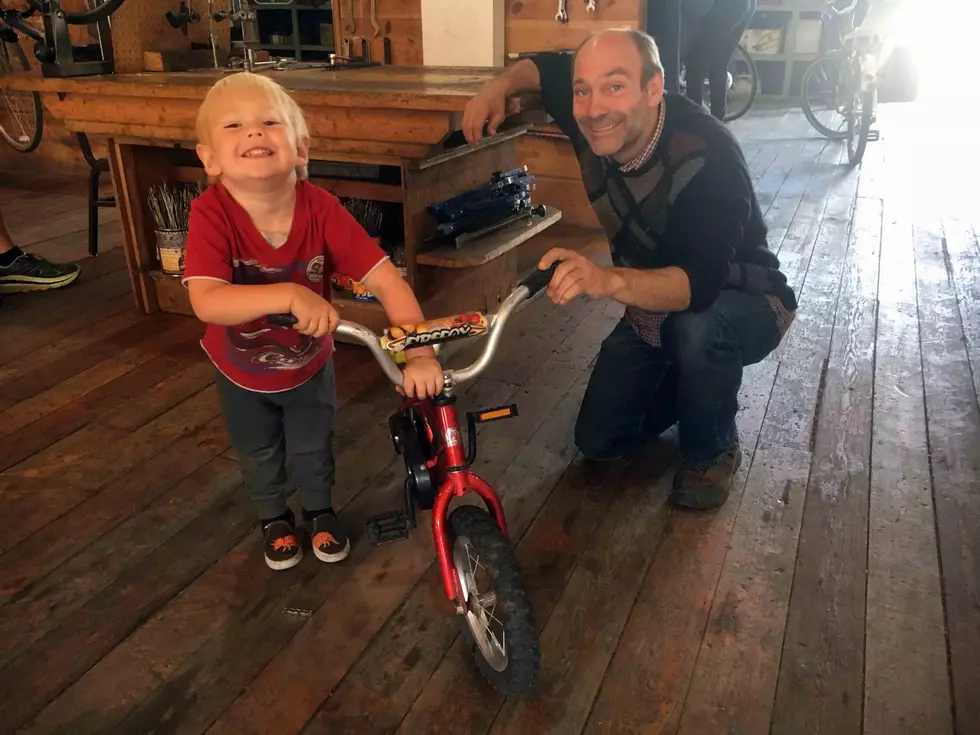
Focus on nonprofits: Free Cycles Missoula readies for spring weather, peak biking season
After 24 years as executive director of Free Cycles Missoula, Bob Giordano and his staff prepare this time every year for spring weather and the onslaught of biking in Missoula and area trails.
Keeping nonprofits alive and prospering in Missoula is always a trick, but Free Cycles Missoula can rely on a sure bet: spring weather and its annual heady influx of biking enthusiasts hankering to get outdoors.
Giordano gears up this time annually for his nonprofit’s peak season.
“We’re getting ready for the boom in bicycle activity that occurs from May to September,” said Giordano. Other short-term goals on his agenda:
“Train our two new staff, lay groundwork to change the Hip Strip to be safer for people to travel across and upon – and ensure the LRTP (Long-Range Transportation Plan) update that starts next week meets the city mode shift goals.”
The LRTP update, which takes place every four years, guides projects and programs. The 2016 local policy tripled the number of people who walk, bike and take transit, for starters.
“We need more infrastructure change, that is one area Missoula Institute for Sustainable Transportation focuses on heavily,” said Giordano. “That will help meet that policy goal. We think this means projects such as more trails, bikeways, safer intersections such as single lane roundabouts, connected walkways, increased bus service and getting passenger rail back through Missoula – and also a land-use pattern that creates mixed uses, so services are within walking distance of where people live.”
Free Cycles is a Missoula Institute for Sustainable Transportation (MIST) program, a citizen-based nonprofit that works to create a system of movement that is safe, equitable and environmentally sound.
MIST aims to make walking, bicycling, and public transit more complete, accessible and enjoyable.
Likewise, Giordano reminds the community of his nonprofit’s broad-based, long-term work goals:
“We provide access to bicycles, and bicycle repair, to all of the region, teach bicycle repair skills to all of the youth of the region, make streets much safer for all modes, connect regional trails, replace most stop lights with modern single lane roundabouts, help bring back passenger rail and do away with injury crashes,” he said.
Free Cycles also plans to “implement a neighborhood greenway system; initiate bike share and car share; go off the grid with the free cycles mist property on South 1st Street and educate about the need to change transportation,” he added.
However, challenges remain in the nonprofit world, which Giordano said includes paying bills, staying relevant, providing quality service, making change, juggling many tasks, plus changing and improving the community.
Hands on, Giordano and staff help bicyclists with mechanical problems, whether removing stuck fixed-bottom bracket cups and fused-seat posts or making the transition from a car-dominated transport system to one that provides greater access.
Long-term goals for Free Cycles Missoula run the gamut, but Giordano enthusiastically embraces bicycle education and access for Missoula’s bike-happy community. Above all, he touts the Free Cycles Missoula mission to offer “safety and joy to people that walk, bike and take public transit.”
As a wealth of sturdy, viable community nonprofits work hard to stay afloat financially, Giordano – like almost every other executive director the Missoula Current interviewed – said reliable volunteers help makes all the difference.
“Being frugal and embracing simplicity tends to be critical,” he said. “This town is full of people willing to help and volunteer (with University of Montana, too), so that is a key, too.”
Free Cycles Missoula takes a lot of pride in its community improvement approach.
Giordano said his staff has helped over 20,000 riders fix their bikes, worked with various neighborhoods to change 5th and 6th Streets for better rideability, won the $10,000 Women’s Giving Circle grant to hire a build-a-bike coordinator and – last but not least – hired a new Youth Cycles Coordinator to work magic on all the kids programs.
Still, he attributes Free Cycles success to the community at large and his nonprofit’s higher calling.
“We are very appreciative of the support in Missoula,” said Giordano. “We need more volunteers. People can donate unused bikes to Free Cycles. We encourage people to speak up about
making transportation better for all!”
Free Cycles Missoula is located at 732 S. 1st St. West and www.freecycles.org/
